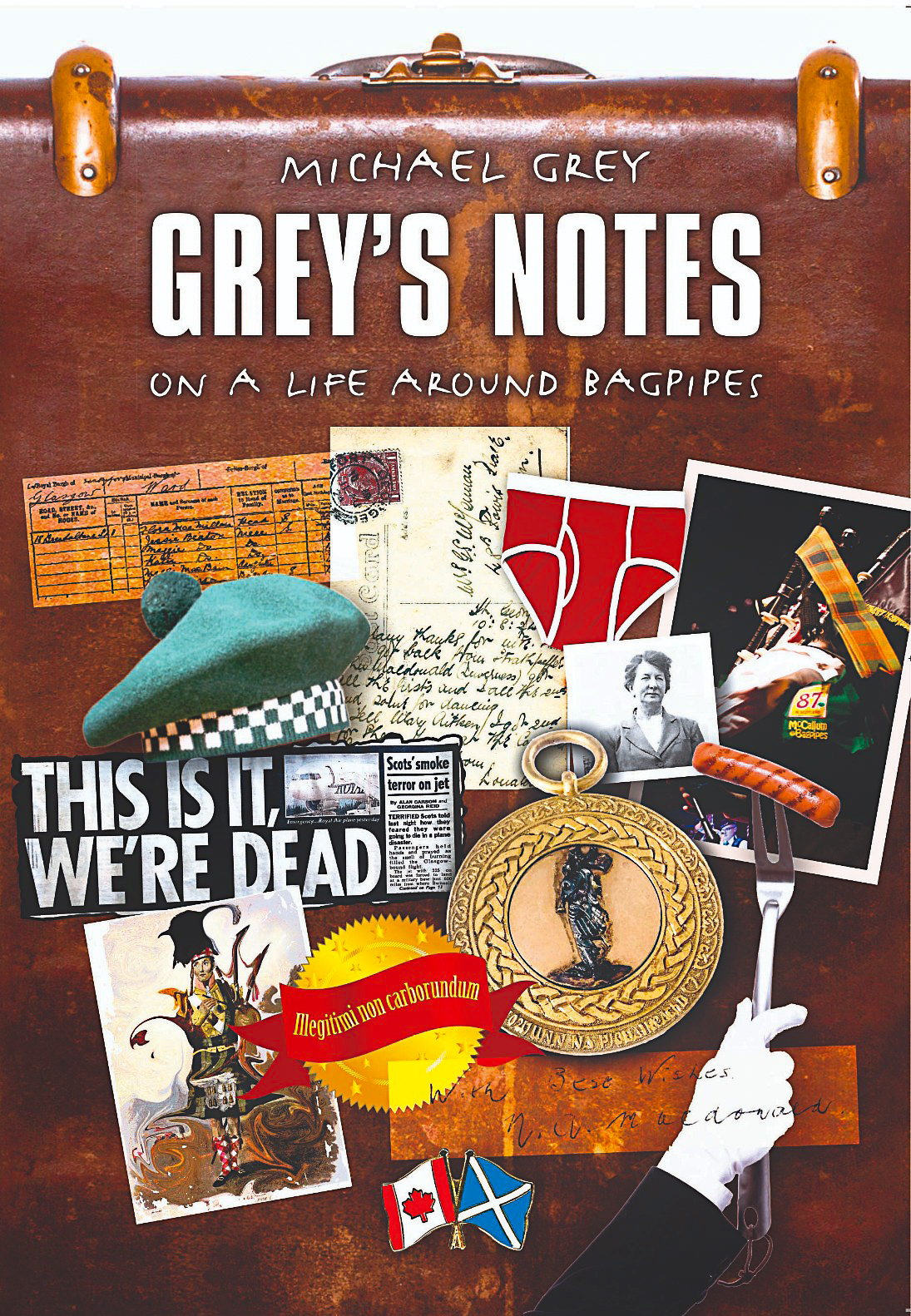It’s a Small Worlds After All
August 15, 2009 on 6:58 pm by Michael Grey | In News, Pipe Bands, Whinges | 7 CommentsBBC’s live streaming of today’s World Pipe Band Championships worked beautifully. In one marvelous effort the BBC has transformed, in one big-servered swoop, the perception of the the grand event as a need-to-be-there happening, at least for observers. A good set of speakers and high speed internet access provided any listener, anywhere, with at least as sound a listening post as those on the Green tenth row back from the ropes. To those who have never attended the event the broadcast has allowed a look-in to how things work and gives a fair representation to the scale of the event. To those pipe band zealots who have been (many times before, like me) and couldn’t attend, BBC’s magnanimity provided a fix that helped ease the angst of not being there.
I must admit, I didn’t sit arse-glued to the desk and watch the whole proceedings from start (0400 h EST) to end, but I did catch some medley stuff and the prize-giving. A couple of things struck me: first, what a small crowd. And, second, what a small global online audience.
We in pipebandom can – and do – get pretty uppity about our place, the pipe band movement’s place, in the culture of the world. We view pipe band music and pipe band importance as serious business: “don’t they know who we think we are”, I think back to a silly and oft-quoted line from a long-ago band. I know I have – and do. But really, I have to tell you, when the Chieftan guy, Lord Provost of Glasgow, Blethery MacSomebody, said, “…and I am happy to say that as of half eleven today the BBC has had 50,000 hits on their web offerings…”, I thought, “WTF, is that all?”. Good gawd, there’s 6 billion people on God’s green earth and a group of people not much bigger than the small town I live in tuned in … crap bags. Not good.
I suggest that should the full “ratings” stats be released by the BBC we, the “pipe band world”, will get one of the most accurate measures of our place in the world. We may not know, or have a sense, of the stretch of our influence in world music, world culture, but we will have a sense, courtesy of hard numbers, of our hard core audience. I would sorely hope it is way above 50,000 “unique hits”.
And a comment on the crowd: The BBC provided a fine aerial few of the crowd. The assembly of performers (and not all performers, I note, opted to participate in the massed bands thing) out-numbered the audience – or, at least, appeared to out-number the audience. Do the people of Glasgow really care about the WPBC? Enough to buy a ticket and have a listen? Once again, it looked liked families and friends filled the stands.
Hats off to Bob Worrall: He is one smooth, in-the-know and all ’round good-talker guys in the commentary department. While some of the pipe band world’s governing bodies (read: RSPBA) may not recognize his leading adjudication abilities, the world (all 50,000 of us online, at least) rates him tops in all areas that touch on fair and insightful.
Congratulations to all the winners and all the participants – you played your hearts out and we appreciated it all.
M.
PS. Is it just me? I hate it when in a music contest like this people start saying stuff like, “I’m proud to be a Canadian because the Canadian band won”, or “Proud to be a Scot becauase the Scottish band won”? That rings hollow with me in a contest that, I think, is about music.
7 Comments
Sorry, the comment form is closed at this time.
Dunaber is using WordPress customized and designed by Yoann Le Goff from A Eneb Productions.
 Entries and comments
feeds.
Valid XHTML and CSS.
Entries and comments
feeds.
Valid XHTML and CSS.



Agree all around, Mike. What’s unfortunate is that in the broader culture, things narrow enough to only reach 50,000 typically get dismissed as not having much value. That’s not a problem with popularity or reach, but one of goals and benchmarks (which are usually arbitrary and fleeting). And this in an age when internet tech is making the niche audience more important–at least to those who want to reach it. If these kinds of things were measured on pure impact on the audience, then the value of the WPBC and its webcast is immeasurable. Speaking as one who DID sit arse-glued for the whole thing, I don’t think any media offering has ever made me feel so delighted that it existed. What could the cost of webcasting for the BBC possibly be? Near zero? In strict business, they spent nothing to get 100,000 eyeballs that they did not have before, so that’s gotta mean something (hopefully).
Comment by Vince — August 16, 2009 #
Thanks for your comments, Vince. 50,000 people watching to a pipe band webstream does indeed mean something. My concern is that like all minority elements of a larger culture, the pipe band, strong as the whole movement may feel, will always be under threat to some larger, stronger, more widely held element – especially if we look inwards and are happy with just “enjoying our wee hobby”. It is important we promote and popularize and not rest on the laurels of a great webcast. We don’t need to be top40 music – or want to be, for that matter – but bringing the loud stylings of a pipe band to any audience, let alone a broad one, will always be our challenge – one we can’t let up on. M.
Comment by mike — August 17, 2009 #
Living in the comfortable time zone was nice. The only thing that annoyed me was the speakers urge to comment the performances as they where played. “Now we have the transition to Snuff Wife” etc.. I don’t know if it is a North American habit or a demand from BBC but I found it distracting. I doesn’t help that the comments are still there on the edited videos. On the other hand the RSPBA speaker introducing a certain reel as McAllister’s Willie was out of this world 🙂 That’s really what live performance is all about.
Comment by Stig Bang-Mortensen — September 5, 2009 #
“McAllister’s Willie”! Now that’s funny.
I can’t think of a North American “habit” of any kind, to be honest. Not even a Canadian habit. Anyway, I am pretty sure that Bob Worrall was hired by the BBC to commentate and was directed how to appoach that requirement. M.
Comment by mike — September 6, 2009 #
I’m sure the speakers did as BBC wanted them to do. My wonder is, is this type of speak necessary?
In order to understand the statements like “This is the transition to the Snuff Wife” some bagpipe/musical knowledge must be at hand otherwise the statement makes no sense. If no appropriate knowledge is at hand some pretty bizarre pictures will be shown at the inner cinema.
Comment by Stig Bang-Mortensen — September 7, 2009 #
A good question, Stig. I suspect the BBC is aiming to reach out to those not familar with pipe bands, piping, drumming … and help them understand the finer points of the music (unfortunately, a basic tune change to us is a finer point to uninitiated listeners). Just a thought. M.
Comment by mike — September 7, 2009 #
The half hour in between the MSR and the Medley could be used for educational purposes. A preproduction by some one who knows about the matters could fill out the gap explaining some of the finer points. BBC has made some really brilliant programs explaining music and instruments.
Comment by Stig Bang-Mortensen — September 8, 2009 #